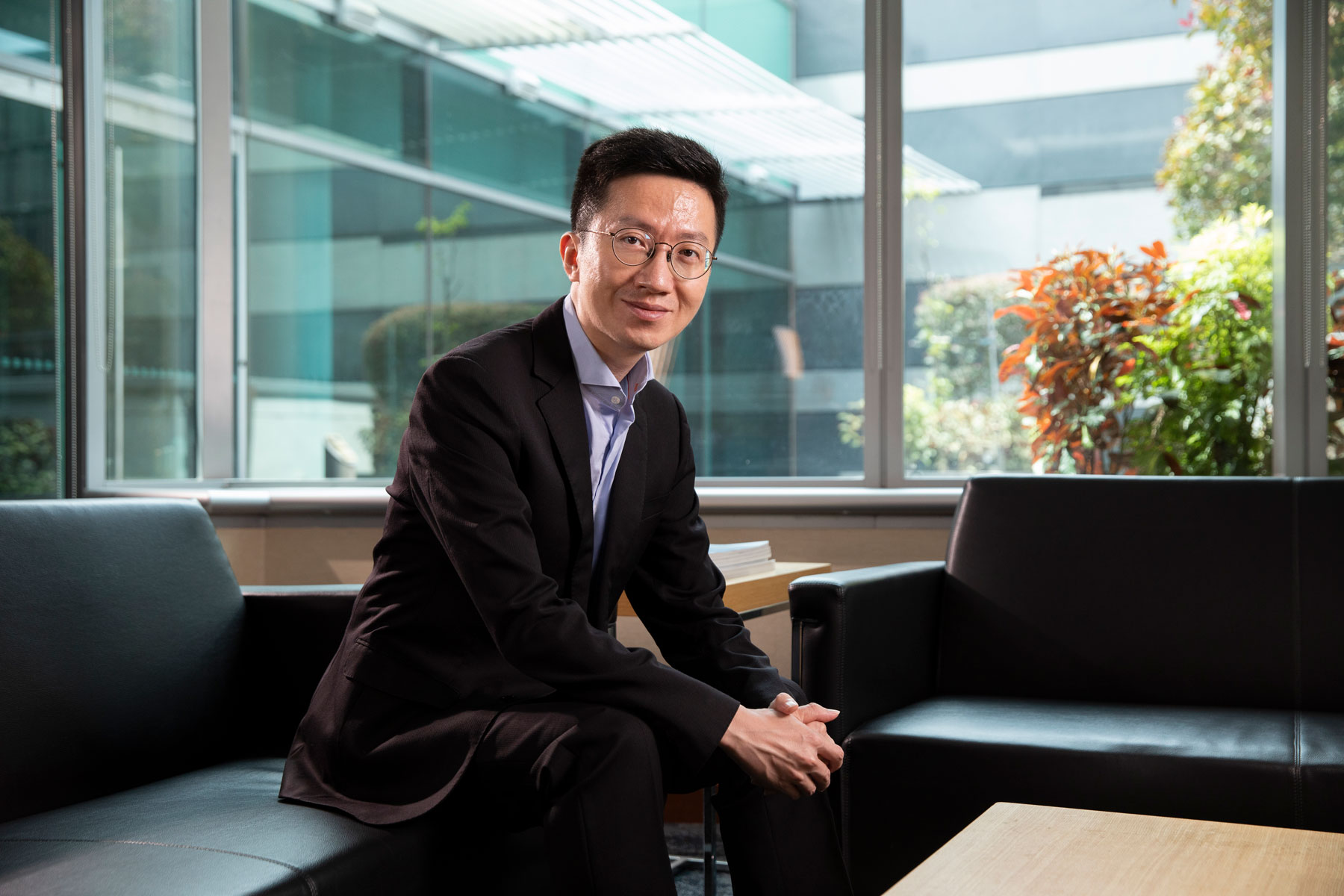Prof Jia Li

Feature on Jia Li, Lee Kong Chian Professor of Economics
School of Economics, Singapore Management University
From astrophysics to algorithms: testing theories against real life
Lee Kong Chian Professor of Economics Jia Li helps regulators and traders know which economic models will best predict the economic future.
Economic forecasts and machine learning algorithms are, to most of us, as mysterious as the laws of the universe. But for Jia Li, Professor of Economics, he has the right tools to unravel those mysteries—substituting theory and matter with models and data.
Li’s first encounter with SMU was almost a decade ago, when he was invited to speak at the 2013 Asian Meeting of the Econometric Society hosted by SMU. However, it wasn’t until 2019 that he made an official visit to the university—and was deeply drawn to it.
“I was very impressed by the School of Economics and its world-class econometrics research group—above all, by the calibre of the students. They were passionate about their field and gave excellent presentations,” recalls Li. When the opportunity to formally join the School of Economics (SOE) came, Li swiftly seized it.
“The energy—and passion—of the faculty and students is compelling,” he says. “When it comes to passion, it doesn’t have to be the same as that of others. It also doesn't have to be about money. I’d say follow your heart—in every step of my career and my life I have done just that.”
Putting economic models to the test
Li’s genuine passion shines through as he describes his academic journey from astrophysics to economics. “I was what one might called a ‘physics geek’ in high-school,” he says, recounting how his excellent performance in the subject won him prizes and a place in Peking University to study astrophysics. Before long, however, he was introduced to a whole new world by his roommate—the world of economics.
“He was very into social science; we would talk about it a lot. I found it all very interesting!” So much so that, it turned out, he eventually graduated with a double degree in economics and social science. Eventually his professors invited him to join the China Center for Economic Research to pursue a master’s degree in economics.
But although he had ‘officially’ become an economist, he would “always approach economic research with the mindset of a physicist,” he says. This mindset naturally gravitated him towards econometrics, where data and statistics are used to understand economic relationships.
In the realm of econometrics, he approaches the technical aspects by working at the interface between theory and data, hypothesis and falsification—essentially the whole cycle of scientific research. In this case, the theory aspect is that of economics rather than of astrophysics, and he observes reality through people's economic behaviour rather than the movement of matter.
The data explored by Li are the millions of trades and transactions in financial markets. With this vast amount of data, Li tests the accuracy of economic models and tools. The primary questions he seeks to address are: “Do the models’ theories and rules match the real story told by the data?” and “Are the tools working reliably?” Answering those questions would allow him to measure market volatility in order to understand market risks, as well as the performance of models that measure that risk.
Currently Li is devising an evaluation methodology, one that’s known as “Conditional Superior Predictive Ability” which compares different forecasting models. “A natural question to ask is ‘which model is better?’ But both could be very good. A more precise question to ask is which will work better in certain empirical scenarios, for example, one might perform better in a recession while the other might do well in better economic conditions,” he explains.
Opening black boxes to build trust
Fundamentally, Li’s research helps us to know which models we can trust—an important task with the advent of machine learning and artificial intelligence (AI). One particular machine learning model that robustly forecasted inflation was adapted from the random forest method—named for its broad usage to classify images.
Nonetheless, Li acknowledged the need to be cautious about relying on machine learning and algorithms, given we cannot tell them to ‘show their working’ in each case like we can to a maths student.
“A ‘black box’ may work ninety-nine percent of the time, but without a deep theoretical understanding of what is really happening within, there is a possibility that the other one percent may happen tomorrow,” Li says.
To address this challenge, Li is leading the establishment of a Centre for Machine Learning and Econometrics at SMU to nurture cutting-edge research on modern data analytics for economic applications.
Mentoring the future
In the pursuit of the perfect model, Li never loses sight of nurturing the next generation. “It’s an honour to be an educator—you can have a major influence on a young person’s career,” says Li, who not only enjoys sharing his knowledge through teaching, but also serves as an associate editor in several economic journals such as Econometrica and the Journal of Econometrics.
“As an editor, I aggregate views to assess whether a paper is significant or not. If a paper is assessed to have the potential for publication, we provide feedback for the authors to improve it,” reveals Li. “This is a privilege because we have a part to play in directing where the literature is going, and hopefully in the right direction to propel the field to greater heights!”